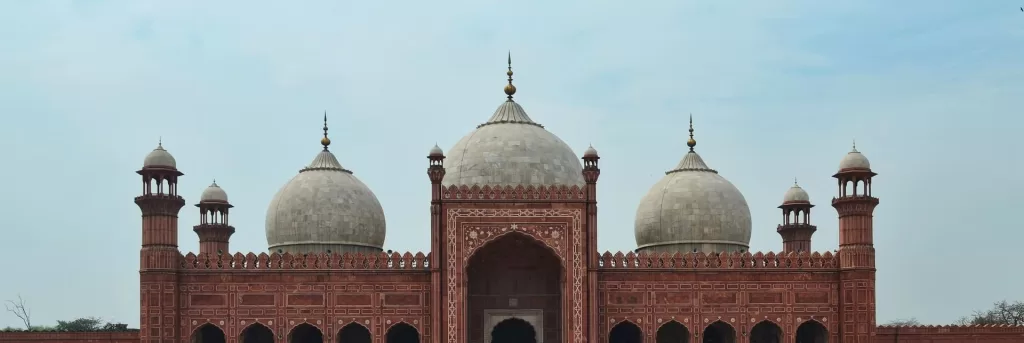Pakistan is a country rich in cultural heritage, with a diverse range of traditions, customs, and history that span over thousands of years. However, much of this cultural heritage is in danger of being lost due to neglect, modernization, and the lack of proper preservation measures. As a result, it is important to find ways to preserve and promote Pakistan’s cultural heritage to the future generations.
Pakistan is blessed with a sizable number of historic buildings and archaeological sites. All Pakistanis have a responsibility to protect and preserve these historical resources since they are our connection to the past and will last for many more centuries.
It is Pakistan’s ancient lineage that gives us a unique identity in a time when globalization is rampant. We should not forget, Pakistan is a rich trove of old legacy, spanning many centuries. This appears to be our best kept secret asset from the outside world.
Prominent Historical Places
Mehargarh, Moenjodaro, and Harrappa are located in Pakistan. This is the country that enticed Alexander who sailed down the Jhelum River with colorful flags flying. Pakistan is also home to the magnificent Gandharan civilization, which served as the centre of Buddhism, the devotional carvings of the Hindu Shahi temples of the Salt Range and Tharparkar, and the stately funerary clusters of Makli, Multan, and Ucch Sharif, which represents successive Sultanate dynasties.
Major Cities of Pakistan
Peshawar, Multan, Thatta, Karachi, Lahore and countless other modern cities with their historic settings are all important in our search for and understanding of our cultural diversity. These historic urban cores can be found from the highest points of the Khyber in the far north to the southernmost tip of the great river Indus.
The Walled Cities, a repository of valuable architectural heritage, with its organic morphology and meandering streetscapes, need to be preserved and revived in order to continue to add distinction and historical flare to our rapidly expanding metropolitan centers. The traditional value system that has been tempered over centuries is reflected in these historical footprints. The traditional value system has been strengthened over centuries, but it still needs support to meet the demands of modern existence without losing its natural brightness.

This is Pakistan’s cultural heritage and needs to be protected. One of the most effective ways to do this is through tourism. When tourists visit a destination, they bring in much-needed revenue to the local economy and help create a sense of pride and appreciation for the area’s cultural heritage. Quite obvious of the fact that revenue generated will help spend more on preservation of such valuable historical assets. This is how, the tourism can play a significant role in preserving the cultural heritage of Pakistan.
In this blog post, we will discuss the steps that can be taken to preserve Pakistan’s cultural heritage through tourism.
Promoting cultural awareness
One of the first steps in preserving Pakistan’s cultural heritage through tourism is to promote cultural awareness. This means educating tourists first about the presence and then the historical value it holds for the respective region. Also, how the cultural heritage plays the role in shaping a country’s identity. Tourists can be informed about the history, traditions, and customs of Pakistan through various mediums, such as brochures, guides, and interactive exhibits. This can also include comprehensive and targeted international campaigns to attract foreign tourists.
Supporting local communities
Tourism can have a major impact on local communities, and it is important to ensure that this impact is positive. By supporting local communities, tourists can help preserve the cultural heritage of Pakistan. Government needs to play an important role in uplifting respective areas and enable the basic infrastructure but also, help the people bring up organized markets and bazars with shops selling items that are interaction for potential tourists. The tourists visiting local markets, eating at local restaurants, and staying at locally-owned hotels and accommodations adds value to the earnings of the respective local communities.
Protecting cultural monuments and architecture
Pakistan is home to many cultural monuments and architectural structures that are a testament to the country’s rich history and heritage. These structures are often in need of restoration and preservation, and tourism can help in this regard. By visiting these monuments and structures, tourists can help generate revenue for their restoration and preservation. In addition, tourists can also help raise awareness about the importance of preserving these structures for future generations.
Supporting cultural events and festivals
Pakistan is known for its vibrant cultural events and festivals, which showcase the country’s rich traditions and customs. Tourists attendance in these festivals can help preserve the cultural heritage of Pakistan by supporting local communities and promoting cultural awareness. Additionally, tourists can also learn more about the country’s cultural heritage and take part in the celebration.
Encouraging responsible tourism
It is important to ensure that tourists are aware of their role in preserving the cultural heritage of Pakistan. Responsible tourism involves being respectful of local traditions and customs, avoiding activities that could harm the environment or cultural heritage, and being mindful of the impact that tourism can have on local communities. By encouraging responsible tourism, tourists can help preserve the cultural heritage of Pakistan for future generations.
In conclusion, tourism can play a crucial role in preserving the cultural heritage of Pakistan. By promoting cultural awareness, supporting local communities, protecting cultural monuments and architecture, supporting cultural events and festivals, and encouraging responsible tourism, tourists can help ensure that Pakistan’s rich cultural heritage is preserved for future generations.
In order to preserve Pakistan’s cultural heritage, it is important for everyone, including government organizations, local communities, and tourists, to work together towards a common goal and that is promote tourism in Pakistan. Only by working together can we ensure that the cultural heritage of Pakistan is protected and preserved for future generations to enjoy and learn from.